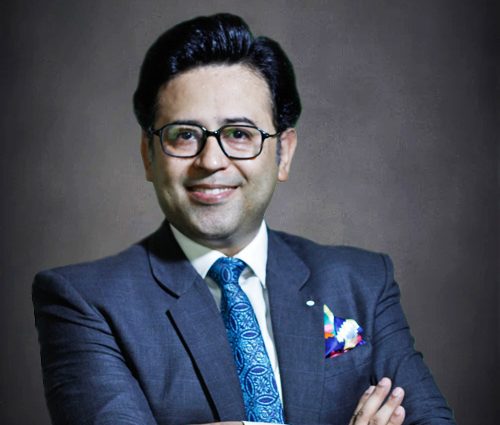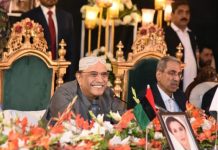Dr M Ali Hamza
The landscape is rapidly changing for the US dollar, with two significant events set to reshape the global economic future. Firstly, the announcement of a new BRICS payment system is supposed to challenge the US dollar’s dominance in international transactions. Even more impactful is the end of a 50-year agreement between the United States and Saudi Arabia, which previously mandated that Saudi oil exports be conducted exclusively in US dollars. As of June 9, 2024, Saudi Arabia’s Crown Prince has opted not to renew this partnership, opening Saudi trade to other countries and currencies. This development is a substantial blow to the US dollar’s status as the world’s reserve currency. For the past five decades, the US govt. has enforced oil sales in dollars, cementing its role as the global reserve currency; a strategic move initiated by President Richard Nixon in the 1970s. This shift signals the end of an era where the US stood as the sole superpower.
On June 5, 2024, Reuters reported that Saudi Arabia has joined a China-led central bank digital currency project, indicating a further move away from conducting the world’s oil trade in US dollars. US Congressman Thomas Massie recently highlighted these changes in a podcast, stating, “We can control as long as they use our currency, but I think it is going to end at some point using our dollars as reserve currency.” He noted that before sanctions, 70% of Russia’s transactions were in US dollars, which has dropped to less than 20% post-sanctions. Ironically, each new sanction by the US govt. nudges the world closer to de-dollarization. This trend is similar in the US’s microchip dispute with China. In an effort to block China’s access to advanced American microchips, the US imposed sanctions. In response, China invested heavily in its domestic microchip industry, rapidly narrowing the innovation gap. Means, the best thing to ever happen to the Chinese semiconductor industry was getting sanctioned by the US govt.
Recent actions, such as the REPO Act for Ukraine, where Congress decided to seize Russia’s sovereign assets in the US, have raised concerns about the long-term viability of holding US dollars. This move involved confiscating significant amounts of treasury debt that Russia had purchased, an act viewed by many as immoral. Such actions make other countries wary of buying US debt, fearing similar treatment. China, once the largest holder of US treasury bonds; at its peak China held over 1trillion USD worth of treasury bonds, has significantly reduced its holdings in favour of gold, anticipating it could be the next target of US sanctions. These developments have spurred the BRICS nations to establish their own payment system. Speaking at the 2024 St. Petersburg Economic Forum, Vladimir Putin emphasized the growing use of the Ruble in Russian export settlements and announced efforts to create an independent payment system within BRICS framework, that aims to be free from political pressure and external sanctions. Western media spins it and often portrays Russia as isolated, but the forum saw participation of 21,300 attendees from 139 countries, signalling strong support for the BRICS initiative.
There were 54 points been addressed during the summit, but top 3 most important takeaways include i) New financial system; to enhance the voice of developing nations. Under the current US dollar system every country is on the mercy of the US govt. and this remains the biggest motivation for BRICS; creating independent payment system that uses local currencies in trade and get free from the US sanctions and outside political pressure. ii) Israel and Palestine; as war in Gaza has become the latest political issue separating BRICS and United States. US has been providing unconditional support to Israel and frankly has proved useless in ending the war in Gaza but BIRCS alliance will fightback and pursue the path of statehood for Palestine; something 88% population or 139 most populous countries of the world wants to see. iii) End of US sanctions; the ministers at the summit express concern saying ‘the use of unilateral coercive measures which are incompatible with the principles of the charter of the UN and produce negative effects on economic growth, trade, energy, health, and food security notably in the developing world’. The statement does not name any specific country, but you need no special classes of calculus to understand who they were referring to.
You just need to remove yourself from the western media bubble and start to observe global trends, you will notice that majority of the world are united in what they want; the economic freedom. A significant number of countries are seeking economic freedom and a multi-polar world, allowing them to trade with multiple nations. Saudi Arabia is seriously considering full BRICS membership to diversify its trade partners and currencies. A recent study by the Atlantic Council’s GeoEconomics Center indicates that while the US dollar remains the world’s primary reserve currency, the reliance on it is increasingly being questioned.
Pakistan, from the day of its inception, has been an ally of the US. There could be certain strategic and regional factors paved the way for Pakistan to rely heavily on the US. But at the same time Pakistan should have realised by now that the US will stand by you only as long as it cannot find an alternative. For instance, during the entire Afghan war, Pakistan was considered an important ally, but as the war ended, so did the US-Pakistan cooperation. Secondly, Pakistan should have realized that its alliance with the US has resulted in nothing but economic, political, and, most critically, social degradation. Despite appearing sovereign, the reality is that we remain heavily influenced by Western powers. This is the right time to push toward BRICS membership; in letter and spirit, using all diplomatic channels, so in the wave of de-dollarization Pakistan earns freedom from dollar colonialization.

















